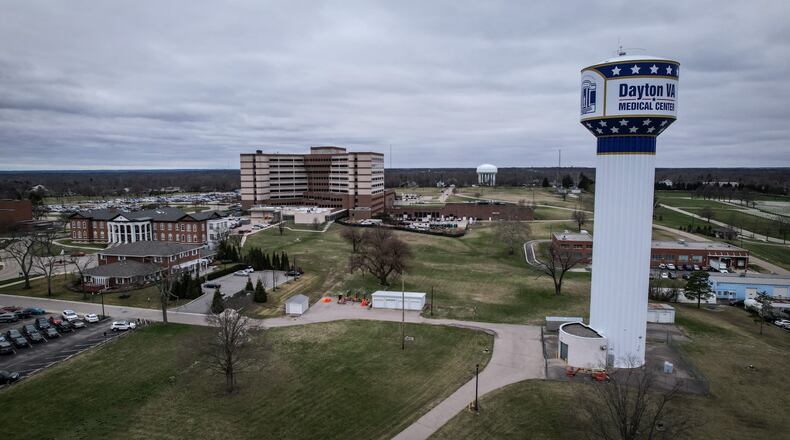Effective immediately, enrolled veterans can access the service by calling the Dayton VA’s main number at 937-268-6511 and pressing “3.”
Medical triage staff — usually registered nurses — are available 24/7 and will guide the veteran to the appropriate level of care, including tele-emergency care, the local VA said in an announcement.
There is no co-pay for the service, the VA said, and providers will have access to the veteran’s full medical record.
In an interview Friday, Dayton VA Chief of Staff Dr. Lora Cox-Vance acknowledged that the VA has offered tele-health services for years.
“What’s different here is that this is tele-emergency medical care,” Cox-Vance said. ”This is higher-acuity emergency care services that haven’t been a consistent comprehensive part of our services in the past.”
The idea is to make services easier for veterans. But the VA, like other hospitals, has a busy emergency department.
“What we see is that veterans who are seeking emergency room services sometimes for concerns that could be managed either in out-patient care, a primary care physician or they’re not emergencies, they don’t truly meet that higher acuity” standard, Cox-Vance said.
Nationwide, the VA started offering medical advice via “tele-health” or “video visits” in the spring of 2003. Use of the service surged during the COVID-19 pandemic, the VA has said.
Veterans with life-or-limb-threatening injuries or illnesses should still go to an in-person emergency room or call 911.
But the telephone service is meant to help those with cough, cold, flu, and COVID symptoms, sore throats, COPD (Chronic Obstructive Pulmonary Disorder) and asthma flares, eye redness and irritation, tick and other insect bites, skin infections, “minor” allergic reactions, GI (gastro-intestinal) illnesses, urinary tract infections, gout flares and muscle sprains/strains.
Nationally, telehealth triage services stabilized at levels 38 times higher than before the pandemic, corporate consultant McKinsey & Co. wrote in July 2021. By then, such services had approached up to 17% of all outpatient/office visit claims, McKinsey said.
This is not just the Dayton VA offering the service. The West Dayton campus is part of VISN (Veterans Integrated Service Network) 10, which includes parts of Ohio, Indiana and Michigan.
Across VISN 10, the tele-health emergency services went live on April 1. In that time, the Dayton campus had 85 visits (calls or virtual visits) from the Dayton area.
About the Author

